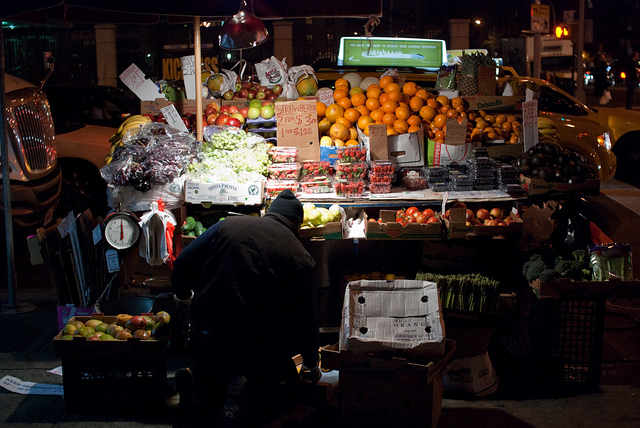
Mayor Michael Bloomberg’s latest budget proposal has created controversy in New York’s street-vending community. The proposed city budget allocates $580,000 to hire a team of seven lawyers dedicating to exerting pressure on vendors to pay their neglected tickets and fines. And merchants aren’t happy.
“The vast majority of tickets we see are for violations that have nothing to do with health or safety or trash,” said Street Vendor Project director Sean Basinski. “They are mostly things like having a license in [the vendor’s] pocket instead of having it on display while vending.”
The city issues 26,000 tickets annually, with fines reaching $1,000. The project is currently campaigning to pass the Intro 434 and Intro 435 bills. Intro 434 will reduce the maximum fine from $1,000 to $250 and according to Intro 435 the fines will only increase for vendors with repeated violations of code.
Meanwhile, Manhattan’s Community Board 2 which covers Greenwich Village, the West Village, NoHo, SoHo, Lower East Side, Chinatown and Little Italy, brought attention to another issue caused by street vendors: overcrowding. After a unanimous vote at the Jan. 24 board meeting, CB2 created a resolution asking both the mayor and the city to convene the Street Vendor Review Panel to evaluate the number of street carts in the “Broadway Corridor,” a segment of Broadway between East Houston and Canal streets.
The resolution also asserts that many vendors violate the New York City Administrative Code §20‑465, which prohibits street vendors from doing business within 20 feet of the entrance way of any building or on any sidewalk that provides less than a 12-foot wide path for pedestrian traffic.
Max Cadral, a veteran and jewelry salesman in the Broadway Corridor, was charged in September for violating the 20-foot-distance regulation. Cadral, who said his vending table never broke the 20-foot margin, voluntarily skipped his court hearing in November and has yet to pay the fine.
“I’m doing something legally,” Cadral said. “I have a license to be here.”
Other vendors asserted that the fines were just another way to generate revenue for the city.
“I think sometimes the city needs money,” said Pedro Rivera, an employee of a taco cart on the Broadway Corridor. “There is a ticket for everything. One ticket is $50. Why?”
Rivera, who has faced financial troubles since Hurricane Sandy, was unable to pay the $50 fine.
“Right now, I think my country Mexico is better,” Rivera said. “I’m not working for me. I’m working for the city.”
While information and suggestions for the preliminary budget must occur by March 25, and the final budget will be voted on June 5, the future of street vendors remains unclear.
Amanda Zambito is a contributing writer. Email her at [email protected].






















































































































































